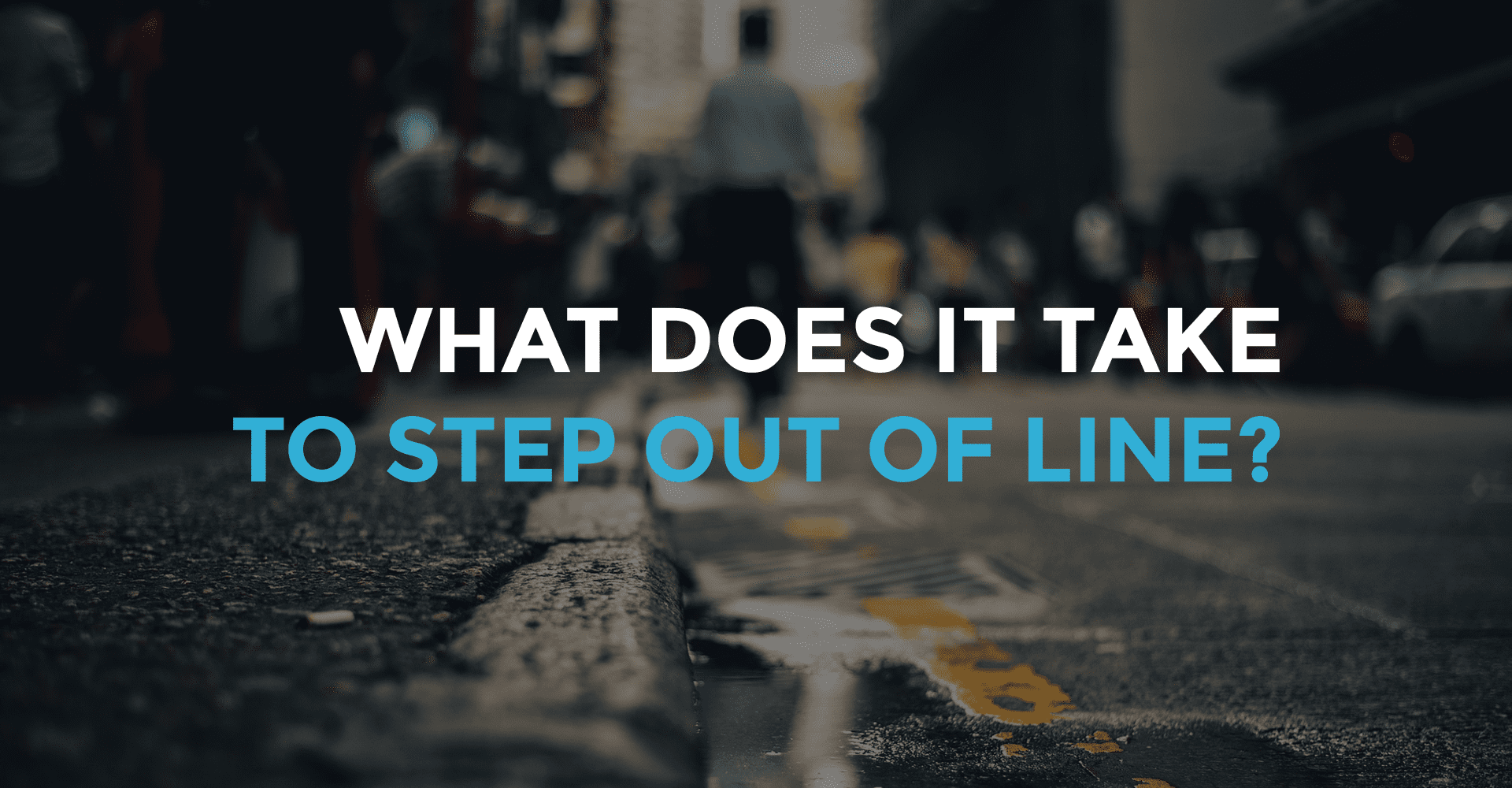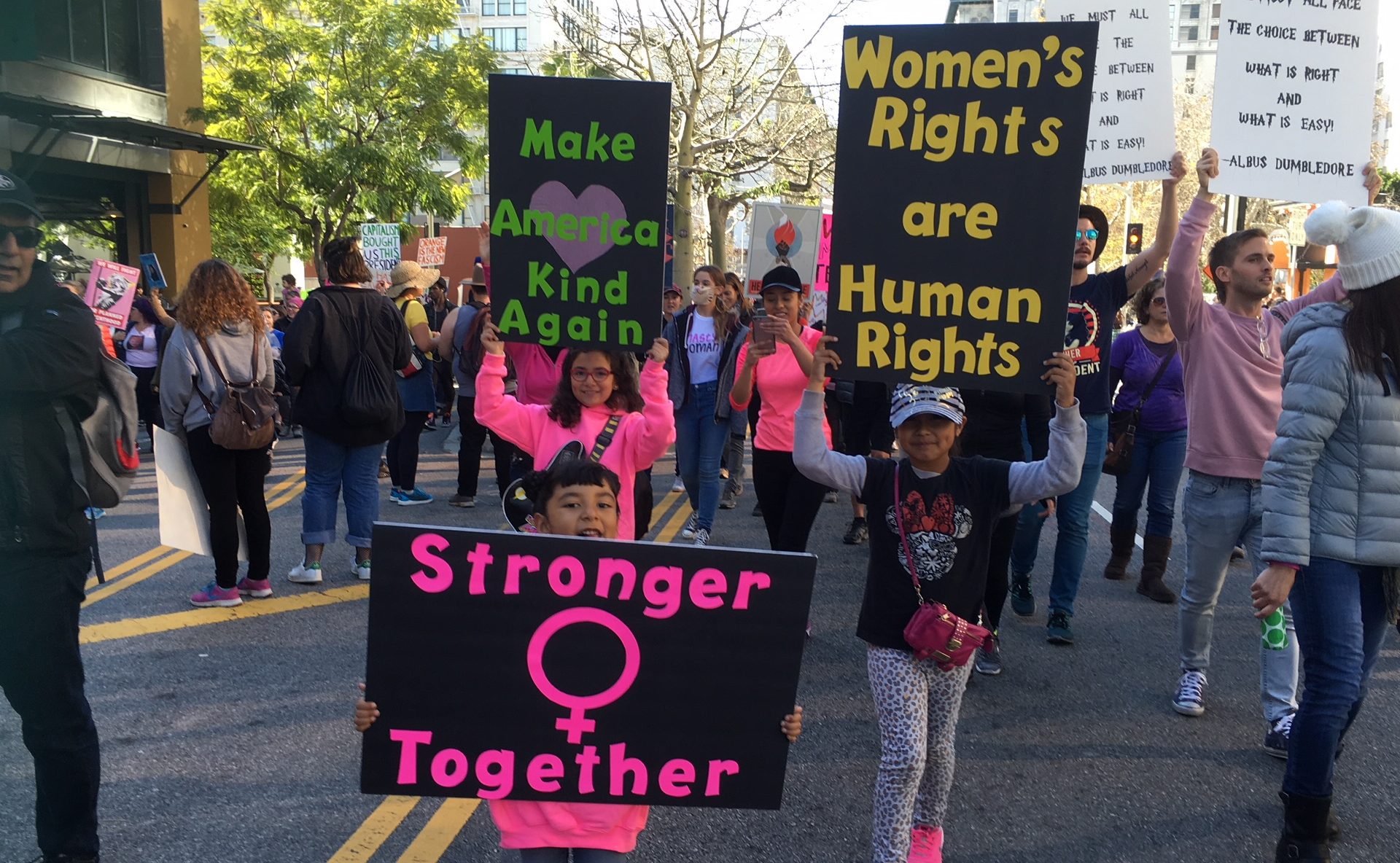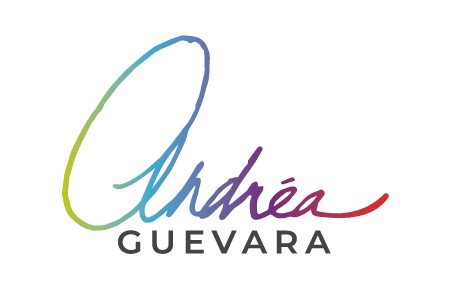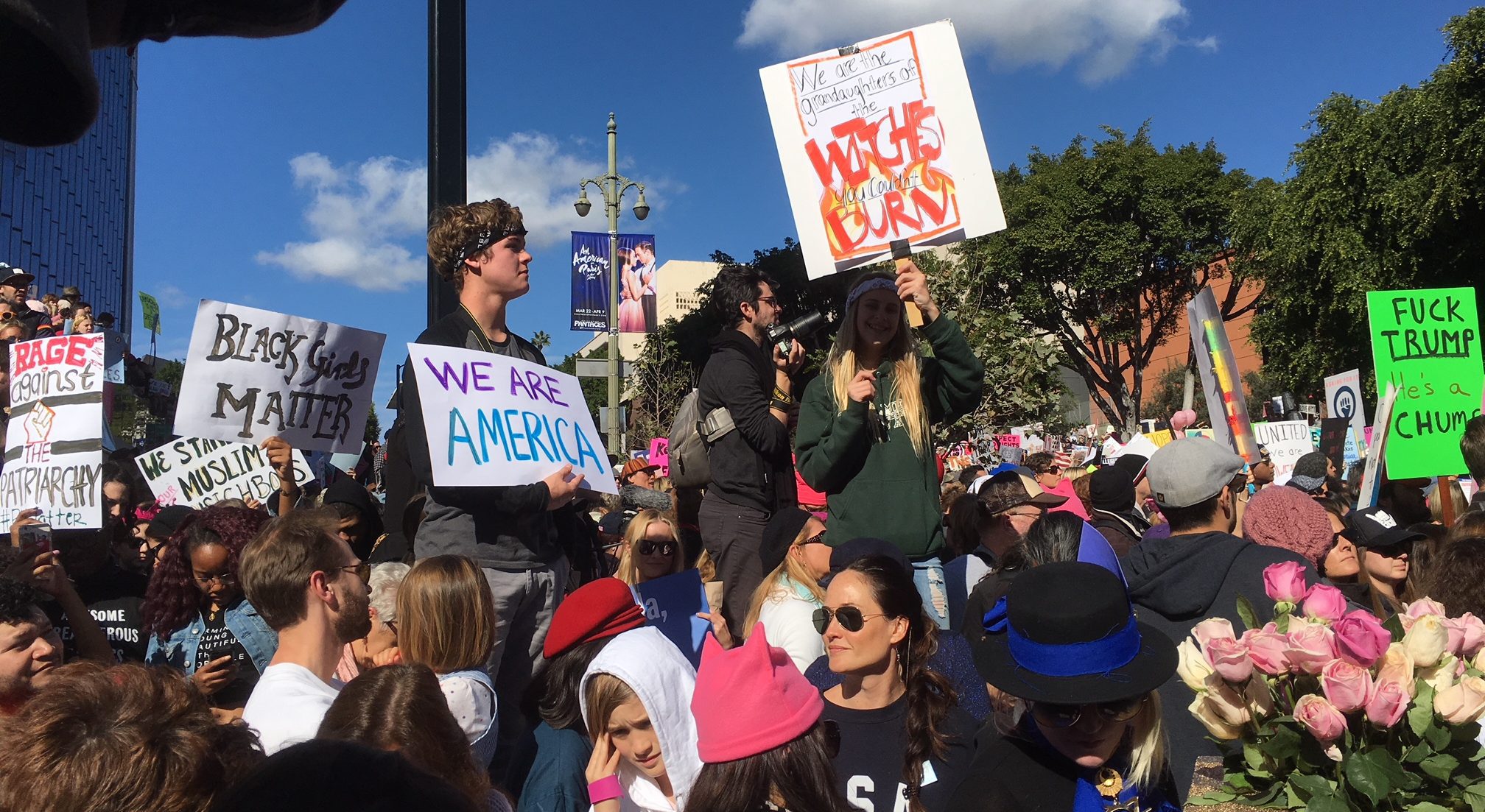When it’s Time to Step Out of Line

The other day I walked into a Starbucks to grab a drink. The line wasn’t bad, but the four people in it made an awkward formation parallel, rather than perpendicular to the front door. I thought it was odd that they weren’t queued up toward the door like at most coffee shops, but whatever; I fell in line. What happened next, a totally mundane series of events, fomented a clarion moment for me.
As I stood in this awkwardly aligned row, right up against a shelf of mugs, I watched as another woman walked in. She took one look at us, an odd arrangement of humans in a sharp, crowded angle and grimaced, then walked toward me and queued up behind.
I caught her eye as she strolled over and smiling, rolled my eyes. “I know, I thought the same thing, what’s with this line?” I said. We laughed.
The guy in front of me turned around, “yeah, I thought so too.” We laughed again.
Yet we all stayed in line.
Now the line was blocking the milk and sugar station. It began to bother me. One more person in line and this was going to get awkward, real fast.
Out of the corner of my eye I saw a harried looking woman on her cell, flanked by two frolicking school-age kids, about to open the door and walk in. I thought of the old man sitting at the table next to the milk and sugar station. These kids would be all over him in a moment. This was a ridiculous predicament, I thought. So, why are we doing this? Why are we staying here?
I had to do something.
“Hey, let’s just fix this real quick,” I said, just before the mom and brood walked in.
I scurried over to where the line should have been. Everyone followed, even the guy in front of me. It’s was a little uncomfortable to tell strangers (or ask them) what to do, but despite my own fear that they’d see me as a bossy busybody, no one seemed to mind. In fact, we all exchanged words about how we should have done this from the beginning. So why hadn’t we?
As I waited to order my flat white, I couldn’t help thinking about how many times I do this in my own life–stay in a situation that someone else created just because I’m too distracted, or too afraid to change it.
Now, I realize this is a freakin’ line at a coffee shop, not a revolution, and there have been plenty of times where I did not have the nerve to change a dang thing. But there was some value in unpacking this microcosm of American life.
After all, what do big changes consist of if not a series of small ones?
As soon as I walked in that day, despite seeing that the line was a mess, I still got into line because I innately didn’t want to upset the social structure, aka didn’t want to be judged as the pushy ass who wants lines to be perfect. I was worried about what people would think, plain and simple.
Once I was in line I knew we’d soon block the sugar and milk station, which made me a little more anxious because there’s just no reason to do that in a perfectly large enough Starbucks. (Again, people-pleaser/social construct subconscious thinking.) And yet, I still said and did nothing.
We need Me Too moments
When the woman behind me walked in to the store with the very same look of confusion that I had when I had walked in, it sparked an unconscious change in me. There was a “me too” moment between us.
And then, because we expressed it out loud, the man in front of us joined in our “me too” moment.
As writers, readers, and artists—heck as human beings—we strive for these “me too” moments.
We touch upon them and even massage them, because of our primal human need for understanding and connection. Belonging. It is a truly beautiful thing to be connected, even if it’s just to a stranger at Starbucks. And especially when we live in a world so divided by politics, beliefs, judgment, and the dehumanizing buffer of rapid-fire technology and information.
Connection is key. We need writers and artists more than ever because they are our connectors. They aren’t motivated by money for money’s sake, like most every other message we hear, but by making sense of or expressing the world around us. Not that they can’t or shouldn’t make money–clearly I don’t believe that! But they are motivated and create from a place that is deeper and wider and more thoughtful than corporate structures and mass-market coffee shops. They speak to us through pathways that transcend other communication methods.

How bad does it have to get?
This is a question a lot of us have asked ourselves lately.
Here’s where the story gets uncomfortable. When the woman with the rowdy kids is about to come into the fray and make what was only a mild problem—an odd line of people blocking the milk and sugar—into a more uncomfortable issue: kids unnecessarily jumping up and down next to the old gentleman at the table next to the station, I finally took action.
We all have these moments when the family is going to walk in—in other words someone lobs some shit at the fan–where we either choose to fix the problem, or speak up, or simply stay in line.
Too often in my own life I’ve waited to the point where things were so uncomfortable that I had to take action. Sometimes I even went beyond that point and wallowed in the misery I should have left behind long ago.
Decisive Change and Connection
I’d like to be the person who would have walked in and kindly changed the line as soon as she saw it. It wouldn’t have taken much, really. Maybe a little uncomfortable social interaction, but that’s it. The line would be queued up with the natural flow again.
Honestly though, I think most of us would opt to not upset the coffee cart. Until of course, we reach our own personal catalyst point. That point where the sugar and milk station becomes blocked or the harried mother and her rambunctious kids walk in, or worse.
I truly believe though, that real change and courage to act often begins with connection. It was the connection that my line-mates and I made that gave me the confidence to change the situation. My unconscious human desire to be connected or liked by my fellow humans, when fulfilled, allowed me to then lead a (admittedly minor) change.
Why then do people who are accepted and integrated into their own social groups still avoid speaking up or leading change? There are tons of groups rallying around causes, or beliefs, or political affiliations, and yet for the most part, most of us remain in line.
Sometimes, connection alone isn’t enough.
There’s another reason that people don’t act, and that’s because we’re thinking about what we’ll order, or checking our Instagram on our smartphones, or puzzling out how we’re going to pay for that expensive dental work, or about whether our kid will pass the third grade.
We are distracted. And we live in a culture designed to distract us from what is most important.
From the moment we wake up to the moment we drift off to sleep we’re distracted with a million different thoughts, emotions, and corporate messages.
In fact, we Americans spend nearly 10 hours a day exposed to media (versus just 5.2 hours in 1945)*. And in those hours, we are exposed to nearly 400 advertisements.
That’s per day.
Those figures don’t even account for the more subversive messaging and advertising infused into just about everything we consume these days. And they don’t even touch the bait-and-switch tactics of our dear president, who deftly causes reality-TV style distractions while pushing through his real agenda in the background.
This insidious mass distraction tactic (and it is a tactic) is described so well by my whip-smart colleague Ellie Robins, in her recent piece for the LA Times, where she points out a root the pathological manipulation that’s long been embedded in our society:
“This school of sales was invented by Sigmund Freud’s nephew Edward Bernays, the “father of PR”…and an engine of early consumerism. Bernays drew on his uncle’s work to sell products by appealing to humans’ innermost desires — for freedom, for instance; for a certain way of life. Next he set his sights on restructuring American democracy itself. In Bernays’ view, humans were irrational and highly manipulable, making true democracy dangerous. His ideal was to hold up the illusion of democratic empowerment while curbing democratic impulses through a voracious cycle of consumerism that would pique and then sate people’s desires.
Under this consumerist vision of democracy, freedom is a brand to be bought, rather than a natural state or one to be achieved by active engagement in civic affairs. The Airstream that Flett so uncritically presents is the ultimate brand of this bought freedom.”
In the midst of all of this calculated distraction, we often don’t even notice that something is off, or if we do, it’s too late; we don’t feel like dealing with it, don’t have the energy to, or we’re afraid to.
Meanwhile, when the real shit is hitting the fan all over our world it often feels like soundbites.
Of course it hurts; it breaks our hearts. I’ve always been one to take on the weight of the world–but that’s not sustainable either. In fact, I don’t think we’re equipped to handle the entire world’s pain, but that’s another story.
We’re so busy and overwhelmed with everything our own lives how can we find the energy and dedication it would take to change things?
This is where Bernays’ philosophies are woven so deeply into American culture, so much so that we literally do not have the energy leftover from our daily lives to bring about the change we need.
Until it affects us directly, which is often too late.
Until the mom with the rambunctious kids walks into the coffee shop, in other words, when global warming drastically affects our own food sources, or we can’t get the medical treatment we need because of our messed up healthcare system, or our kids can’t move out because living wage is jacked and they’re in student debt up to their eyeballs, or our own son gets killed by police brutality.
Will it be enough for us to step out of line and lead change?
I hope so. I want to believe it. Some people are already doing it.
The women and men who stepped out of line recently and exposed the men in power for who they are—sexual predators—are line-changers. The disabled who raise their voices to open our eyes are line-changers. People of color who are telling us, screaming at us to pay attention to the discrimination and brutality that happens to them every day are line-changers. Men who face the roots of their skewed sense of masculinity and expose it, are line-changers.
 We have to care about human rights as much as the megalomaniacs care about money and power.
We have to care about human rights as much as the megalomaniacs care about money and power.
We have to get clear. We need more socially conscious people in power.
Again, I reflect on that moment of connection I had with my fellow line-mates at Starbucks (and yes, the irony of being in the belly of a corporate giant in that moment is not lost) and wonder how I might change my life in order to shift to less distraction and fear of social consequences to creating and seeking connection through worthwhile ideas, art, and knowledge, instead of the din of social media, news cycles, and celebrity buzz.
We can’t really escape the issues, challenges, or even distracting joys of our daily lives. And I don’t think we should completely anyway. But we can limit the bullshit we consume AND we can change our mindsets.
We’re living in a time of unprecedented information overload. Most of the thoughts bouncing around in our brains are pointless distractions, planted there by others. And with social media, we’re tapping on our pleasure-centers so often we almost can’t remember what it feels like to just be present.
The connection to community and other humans we’re so haphazardly and desperately seeking in social media and media at large could be much more effectively fulfilled in real life connections with other human beings. That and deeper self-knowledge.
We need to listen and seek knowledge. And those of us who can take action, must. Those of use who have the ability and privilege of speaking up, must. Sadly, my white voice will be listened to more than that of my latina sister, and less than that of my white brother. Let’s not forget that privilege is real, but changeable. But we must do this together, in whatever ways we can carve out–for writers and creatives that often means we’re most effective in our given arts.
I believe we were given those gifts to change our world. But we cannot fully realize it unless we clear the mental clutter and become relentless in our pursuit of giving power to the people.
I’ve been thinking a lot lately about how to pull away from media while using it to still bring a message of inspiring, burning hope. I don’t have the answers yet. One-by-one I’ll work to shed the things that keep me in this rigged system of placating bullshit. I’ll listen more closely to what the people who are being hurt are telling me.
I think more and more I need to focus on the things that build up my resolve and make connections with others through what we have in common, rather than looking for what divides us. Because we have much bigger changes to make and it ain’t going to happen if we all stay in this wonky bullshit line.
I’m not sure there were ever any real glory days in this country—certainly not for those who weren’t in power— but that doesn’t mean we can’t begin to create them now.
I want to be a line-changer. Not a distraction-maker. How about you?
*According to a 2014 Media Dynamics, Inc. study.

 We have to care about human rights as much as the megalomaniacs care about money and power.
We have to care about human rights as much as the megalomaniacs care about money and power.
